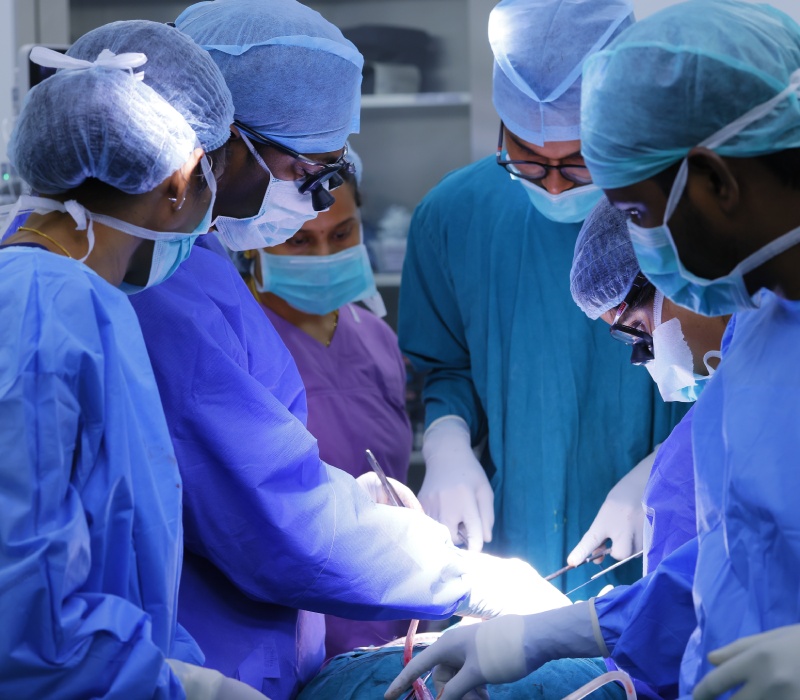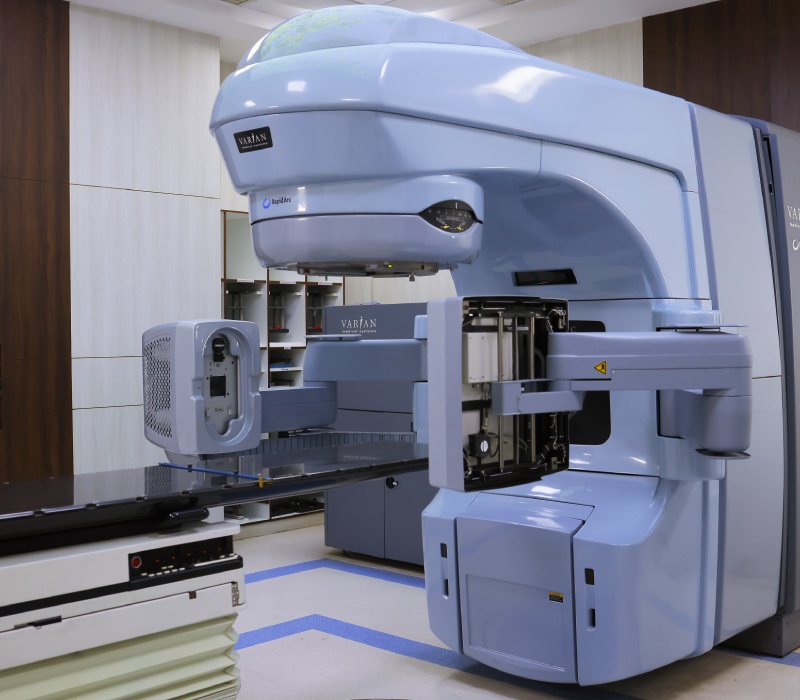Oncology Hospital in India
Oncology

Oncology
Compassionate, integrated, patient-centric cancer care
At Thangam Hospital, our Oncology program is built on expertise, innovation, and a deep commitment to patient recovery. From cutting-edge targeted therapies to personalized radiation plans, our multidisciplinary team of expert medical oncologists, radiation specialists, surgeons, and supportive care specialists work in perfect sync to deliver world-class cancer treatment.
Surgical Oncology
Precision-driven, minimally invasive, patient-centered cancer surgery
At Thangam Hospital, our Surgical Oncology program is built on expertise, innovation, and a deep commitment to patient recovery. From complex resections to organ-sparing procedures, our multidisciplinary team of expert surgeons, anesthesiologists, oncologists, and rehabilitation specialists work in perfect sync to deliver world-class cancer surgery.


Medical Oncology
Targeted, personalized, and compassionate cancer care that evolves with you
At Thangam Hospital, our Medical Oncology department is at the cutting edge of cancer treatment — blending the power of traditional chemotherapy with precision medicine tailored to each individual. We don’t just treat the disease; we treat the person.
Radiation Oncology
Radiation Oncology is a vital branch of cancer treatment that uses high-energy ionizing radiation to destroy cancer cells while preserving healthy tissue. At Thangam Hospital, we are proud to be the first in Namakkal to establish a fully equipped, state-of-the-art Radiation Therapy Unit for the treatment of a wide range of cancers.
Our Radiation Oncology Department combines cutting-edge technology, expert clinical teams, and personalized treatment planning to ensure effective cancer care with minimal side effects.


Onco Rehabilitation at Thangam cancer center
Cancer treatment is just one part of the journey. At Thangam Hospital, our comprehensive Onco-Rehabilitation program is designed to help survivors reclaim their strength, confidence, and independence — restoring quality of life with care, compassion, and clinical excellence.
Pain and Palliative Care
Managing pain and ensuring quality of life is a vital part of cancer care — both during treatment and beyond. At Thangam Hospital, our Pain and Palliative Care Unit offers comprehensive support for patients experiencing acute, chronic, or advanced-stage pain.
Our expert consultants are licensed to administer narcotic medications safely and responsibly, and we provide a full range of evidence-based pain relief techniques tailored to each patient’s needs.

FAQs
Cancer is a disease where abnormal cells grow uncontrollably and may spread to other parts of the body. It is one of the leading health concerns worldwide, with millions of new cases diagnosed every year across different age groups.
The best treatment depends on the type and stage of cancer. Common options include surgery, chemotherapy, radiation therapy, immunotherapy, hormone therapy, targeted therapy, and nuclear medicine. Doctors often combine treatments for better results.
Yes, some cancers can be cured completely, especially when detected early and treated effectively. For advanced cancers, treatment can help control the disease, reduce symptoms and pain, and improve quality of life.
The latest cancer treatments include precision medicine, targeted therapy, nuclear medicine, immunotherapy, and advanced radiation techniques. These therapies are designed to attack cancer cells more effectively while reducing side effects.
Cancer care involves timely treatment, regular medical check-ups, proper nutrition, emotional support, pain management, and rehabilitation. Family support and counseling also plays an important role in recovery.
Cancer treatment itself is not always painful, but some therapies can cause side effects like fatigue, nausea, or discomfort. Doctors in Thangam Cancer Center use pain management and supportive care to keep patients as comfortable as possible. Thangam Cancer Center offer Scalp Cooling Therapy to reduce the effects of Chemotherapy.
Recovery time varies based on the type of cancer, treatment method, and overall health of the patient. Some people recover within weeks, while others may need months of follow-up care and rehabilitation.
Early warning signs include unexplained weight loss, persistent fatigue, abnormal lumps, non-healing sores, unusual bleeding, and changes in bowel, bladder, or skin habits. Early detection greatly improves treatment outcomes.
The best cancer hospital should have experienced oncologists, advanced diagnostic and treatment facilities, and a patient-centered approach. At Thangam Cancer Center, patients receive comprehensive cancer care with modern technology, multidisciplinary tumor boards, and personalized treatment plans designed for better outcomes.
Yes, patients can and should seek second opinions to feel confident about their treatment decisions. Thangam Cancer Center offers second opinion consultations, where expert oncologists review your reports and provide clear guidance on the best treatment options.
